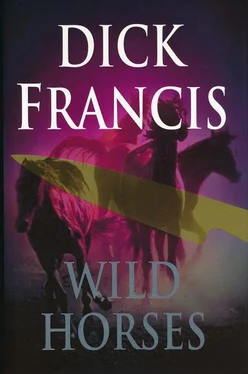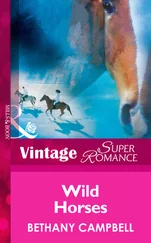‘As you’ve seen,’ I said generally, ‘these changes mean that tomorrow we’ll be shooting on the railed forecourt in front of the Jockey Club’s headquarters in the High Street. Cars arrive and leave through the gates. The local police will help with the town’s regular traffic from eleven to twelve only, so all of our arrivals and departures will be condensed into that time. The Jockey Club has agreed to our using their front door for entering and leaving shots. The internal sets have, of course, been built here in this house. You three... ’ I said to the actors, ‘... can put some useful poison into your various encounters. George, be sly. Iago stuff. You are now secretly engineering Cibber’s downfall.’
The scriptwriter moaned, ‘That’s not the right interpretation. I don’t like what you’ve made me do. Those two are very good friends.’
‘Only up to the point of opportunist betrayal,’ I said.
Howard Tyler, the writer, had already complained about small earlier changes to the producer, to the accountant and to the film company’s top brass, all without getting me fired. I could put up with his animosity in the same way as I stifled irritation at his round granny glasses, his relentlessly prim little mouth and his determination to insert long pointless silences where only movement and action would fill cinema seats. He adored convoluted unspoken subtleties that were beyond most actors’ powers. He should have stuck to the voluminous moody novels from whence he came.
His book that he’d adapted for the present film was loosely based on a real-life story, a twenty-six-year-old Newmarket racing scandal very successfully hushed up. Howard’s fictional version purported to be the truth, but almost certainly wasn’t, as none of the still living real participants had shown the slightest sign of indignant rebuttal.
‘You’ll find you each have a plan of the Jockey Club forecourt,’ I said to the meeting. They nodded, flicking over pages. ‘Also,’ I went on, ‘you’ve a list of the order of shooting, with approximate times. The three cars involved will be driven to the forecourt first thing in the morning. Get all the crews alerted so that lights and cameras can be set up where shown on the plan. If everyone’s willing and ready, we should finish well before the daylight yellows. Any questions?’
There were always questions. To ask a question meant attention had been paid and, as often happened, it was actors with the smallest parts who asked most. George, in this case, wanted to know how his character would develop from the extra scene. Only, I enlightened him, as just one more factor in Cibber’s troubles. Cibber, eventually, would crack. Bang. Fireworks. Cibber said ‘Hallelujah’ gratefully. George compressed his mouth.
‘But they were friends,’ Howard repeated stubbornly.
‘As we discussed,’ I said mildly, ‘if Cibber cracks, your motivation makes better sense.’
He opened his little mouth, saw everyone else nodding, folded his lips and began to act as if Cibber’s cracking was all his own idea.
‘If it rains tomorrow,’ I said, ‘we’ll shoot the internal Jockey Club scenes instead and trust it will be fine on Thursday. We are due to complete the first Newmarket segment on Saturday. On Sunday, as I think you know, we’re shifting the horses forty miles west to Huntingdon racecourse, to the stable block there. Actors and technicians will travel early on Monday morning. Rehearsals, Monday, from noon onwards. Shooting Tuesday to Friday, return here the following weekend. Ed will distribute times and running order to everyone concerned. OK? Oh, and by the way, the rushes from yesterday are fine. Thought you’d like to know. It was a lot of hard work, but worth it.’
The resulting sighs round the table came from relief. We’d spent the whole day in the stable yard, the human action in the foreground taking place against a background of routine equine life. Never could rows of horses have been mucked out, fed, watered and groomed more times in any twelve hours before: but we had enough shots in the can to give the fictional stable unending life.
The script meeting over, everyone dispersed except a tall thin, disjointed-looking man in an untidy beard and unkempt clothes whose unimpressive appearance hid an artistic confidence as unassailable as granite. He raised his eyebrows. I nodded. He slouched in his seat and waited until all backs but our own had passed through the door.
‘You wanted me to stay?’ he asked. ‘Ed said.’
‘Yes.’
Every film with any hope of acclaimed success needed an eye that saw all life as through a camera lens. Someone to whom focus and light intensities were extrasensory dimensions taken for granted. His title on the credits might variously be ‘cinematographer’ or ‘director of photography’. I’d had a mathematical friend once who said he thought in algebra: Moncrieff, director of photography, thought in moving light and shadows.
We were used to each other. This was our third film together. I’d been disconcerted the first time by his surrealist sense of humour, then seen that it was the aquifer of his geysers of visual genius, then felt that to work without him would leave me nakedly exposed in the realm of translating my own perceptions into revelations on the screen. When I told Moncrieff what I wanted an audience to understand, he could instinctively slant a lens to achieve it.
We had once staged a ‘last rites’ scene for a man about to be murdered by terrorists: the ultimate cruelty of that wicked blasphemy had been underscored by Moncrieff’s lighting of the faces; the petrified victim, the sweating priest and the hard men’s absence of mercy. Ego te absolvo ... it had brought me death threats by post.
On that Tuesday in Newmarket I asked Moncrieff, ‘Have you seen the railings outside the Jockey Club? The ones enclosing the private parking forecourt?’
‘Tall and black? Yes.’
‘I want a shot that emphasises the barrier qualities. I want to establish the way the railings shut out everyone but the elite. Inside can be mandarins of racing. Outside, hoipolloi .’
Moncrieff nodded.
I said, ‘I also want to give an impression that the people inside, Cibber and George, the Jockey Club members, are themselves prisoners in their own conventions. Behind bars, one might say.’
Moncrieff nodded.
‘And,’ I said, ‘take a five-second shot of the hinges of the gates as they open, also as they close.’
‘Right.’
‘The scene between Cibber and George is shot to begin with from outside the bars. I’d like the zoo aspect made clear. Then track the lens forward between the railings to establish where they’re standing. The rest of that conversation is in close-ups.’
Moncrieff nodded. He seldom made notes while we talked, but he would write a meticulous worksheet before bedtime.
‘We’re not being judgmental,’ I said. ‘Not heavy handed. No great social stance. Just a fleeting impression.’
‘A feather touch,’ Moncrieff said. ‘Got you.’
‘Contributing to Cibber’s crack-up,’ I said.
He nodded.
‘I’ll get Howard to write that crack-up tomorrow,’ I said. ‘It’s mainly a matter of a shift in intensity from the calm scene already in the script. Howard just needs to put some juice into it.’
‘Howard’s juice is watered cranberry.’ Moncrieff picked up a vodka bottle from among the drinks clutter, and squinted at it against the light. ‘Empty,’ he commented morosely. ‘Have you tried vodka and cranberry juice? It’s disgusting.’
Howard drank it all the time.
‘Howard,’ Moncrieff said, ‘is radioactive waste. You can’t get rid of it safely.’
He knew as well as I did that Howard Tyler’s name on the billboards would bring to the film both the lending library audience and attention from upmarket critics. Howard Tyler won prestigious prizes and had received honorary doctorates on both sides of the Atlantic. Moncrieff and I were considered lucky to be working with such a luminous figure.
Читать дальше












